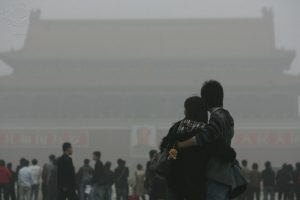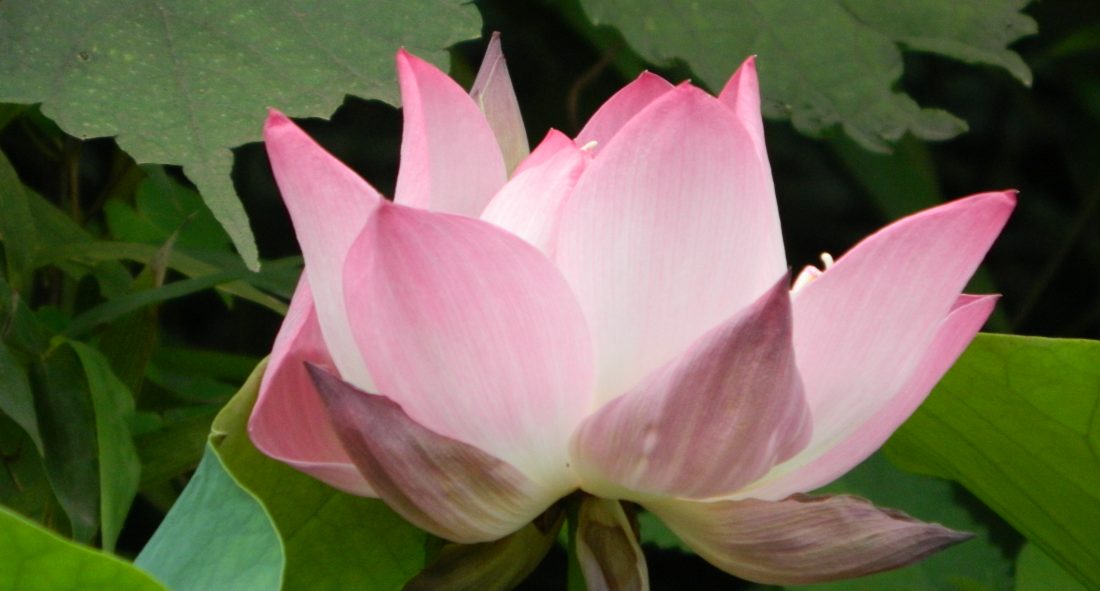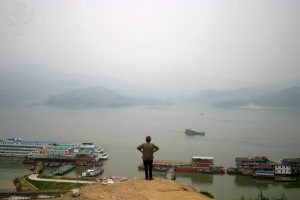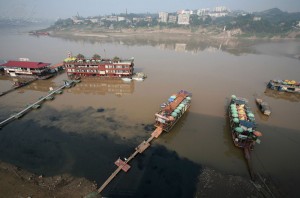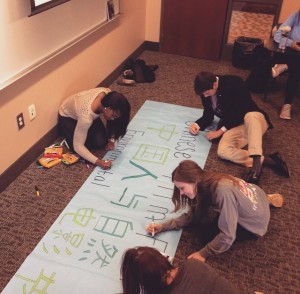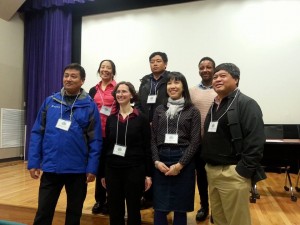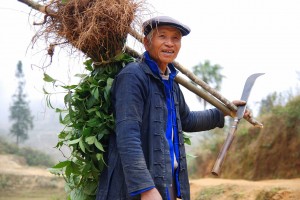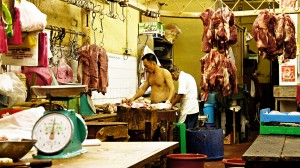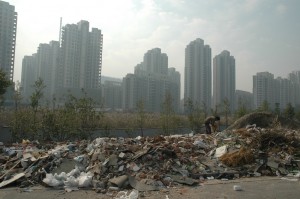By Katherine Crosby, Nick Shaw, and Ashley Cookey-Gam
China has practiced traditional agriculture for centuries, feeding over twenty-two percent of the world’s population with only seven percent of the world’s arable land. However, China’s traditional agriculture is unsustainable. 
These are Chinese Tea Workers on a traditional tea farm in China.
“Scenes of China” by Cory M. Grenier is licensed under CC BY-SA 2.0
No changes were made to this image.
The Chinese have overused chemical fertilizers, pesticides, and herbicides with a negative impact on the environment, including contamination of water and erosion of soil. “…[T]he government reported 43 percent of state-monitored rivers are so polluted, they’re unsuitable for human contact.” (Wan 2010)
In the early 1980’s, the Chinese government began promoting Chinese Ecological Agriculture, which emphasized crop rotations, organic fertilizers, and limited use of pesticides and herbicides. China’s Ministry of Agriculture began certifying “green food” as “A” or “AA” for domestic consumption. In 1994, the China Organic Food Development Centre began certifying organic food. The first exported organic food was green tea. (Sanders 2006: 215-216)

Here are some people growing organic plants by a body of water in Shanghai.
“Shanghai Organics” by kafka4prez is licensed under CC BY-SA 2.0
No changes were made to this image.
Today, organic farming is a trend, popular with young urban professionals who are reversing the massive urban migration and returning to the countryside to become organic farmers, despite facing difficulties. [Link: Difficulties of Organic Farming] Chen Shuaijun, a young banker, and his wife have rented eight acres on Chongming Island. Chen’s neighbors ridiculed him, and his parents, who had labored as farmers, were angry. Not using pesticides or fertilizers has meant that he has had to catch insects by hand, endure endless hours of weeding, and haul foul-smelling organic fertilizers. His neighbor, Han Guojie, gave up a high-paying job as a water quality engineer to become an organic farmer because he believes the traditional farmers have destroyed the land. (Wan 2010) In Sichuan province, Luo Yu, a former stockbroker who earned several thousand U.S. dollars per month, owns an organic farm. He hangs plastic water bottles filled with sugar water to catch insects. His parents told him he was going back to ancient times, but he is committed to improving the ecosystem and growing safe food. (Luo 2008) [Link: Food Safety]
Over fifty different products are grown organically in China today. These include “potatoes, rice, maize, wheat, tea, beans, herbal medicines, vegetables, sesame, honey, eggs, and peanuts.” (Sanders 2006:216)

This is an organic spiky cucumber grown on an organic farm outside Beijing.
“Chinese Farming” by IvanWalsh.com is licensed under CC BY 2.0
Domestic sales have increased as organic food has become popular with the young affluent urban professionals, although the majority of the Chinese cannot afford it. Organic exports have also increased and totaled $350 million in 2005. China has 5.7 million acres of certified organic farmland, ranking only behind Australia and Argentina. (Liu 2007)
Bibilography in Footnote Format
Juliana Liu, “Organic Farming Grips China,” BBC news release, October 4, 2007, http://news.bbc.co.uk/2/hi/business/7012056.stm.
Yu Luo, interview by Melissa Block, National Public Radio, broadcast audio, April 4, 2008, http://www.npr.org/templates/story/story.php?storyId=90448284.
Richard Sanders, “A Market Road to Sustainable Agriculture? Ecological Agriculture, Green Food and Organic Agriculture in China,” In China’s Limits to Growth: Greening State and Society, ed. Peter Ho and Eduard B. Vermeer (Maiden: Blackwell, 2006), 215–216.
William Wan, “Young Chinese Farmers Sowing Seeds for Organic Revolution,” The Washington Post, November 1, 2010, accessed March 29, 2014, www.washingtonpost.com/wp-dyn/content/article/2010/11/01/AR2010110106322_pf.html.
See also:
Chinese Organic Farming: Difficulties Encountered by Organic Farmers
Chinese Organic Farming: Food Safety
